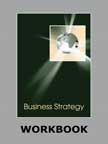



Case Details: |
Price: |
| Case Code |
: |
LDEN083 |
For delivery in electronic format: Rs.500;
For delivery through courier (within India): Rs. 500
+ Shipping & Handling Charges extraThemes
Social entrepreneurship /
Sustainability /
Business Strategy /
Bottom of the Pyramid
|
| Case Length |
: |
23 Pages |
| Period |
: |
1995-2012 |
| Pub Date |
: |
2013 |
| Teaching Note |
: |
Available |
| Organization |
: |
Solar Electric Light Company |
| Industry |
: |
- |
| Countries
|
: |
India |
Abstract:
|
In July 2011, Harish Hande (Hande), a social entrepreneur and the co-founder of the Solar Electric Light Company (SELCO), a Bangalore-based for-profit social enterprise, was awarded the Ramon Magsaysay Award. The award was in recognition for his efforts to make solar power technology accessible to the underserved Bottom of the Pyramid (BoP) consumers through a social enterprise that offered affordable, customizable, and sustainable electricity.
|
|
Since the launch of SELCO in 1995, Hande had been involved in dealing with one of the most pressing problems in developing countries worldwide — unreliable access to electricity. Over 400 million people in India lacked access to electricity, according to the World Bank. Where there was no access to the national grid, rural consumers often relied on other fuel sources such as coal, kerosene, wood, and biomass for cooking, studying, and doing other daily chores. Not only were these sources of fuel expensive, but they were also harmful. The smokes and fumes emitted by open cooking fires killed nearly 1.6 million people, especially women and children in India. In addition to health and environmental concerns, women and children, on whom the burden of obtaining fuel for the family fell, spent a significant amount of time gathering wood, etc. – time that could be spent in school or in doing other economic activity.
<
A ray of hope for such BoP consumers in India appeared in 1991 when Hande chanced upon a village on a field trip to the Dominican Republic while pursuing his doctoral degree from the University of Massachusetts, where the BoP consumers paid for solar electricity. Subsequently, he met an American engineer and social entrepreneur, Richard Hansen, who sold solar photovoltaic systems to poor Dominicans. Hande was impressed by the success of Hansen’s solar photovoltaic model for the poor. He felt that the business model would be applicable to India too. He also drew inspiration from another renewable energy champion, Neville Williams, at the University of Massachusetts and together they founded Solar Electric Light Company (SELCO) in 1995.
SELCO offered solar Photovolatic systems to the BoP that was customized according to the needs of the rural consumers. In addition, the company entered into partnerships with several banks and micro-finance organizations that provided innovative financing schemes based on the cash flows of the BoP consumers.
By mid-2012, SELCO had empowered over 135,000 rural households in India. Going forward, the company aimed to nurture entrepreneurs to replicate its successful business model across the country and thereby serve the BoP segment.
Issues:
» Discuss and explore ways in which a social entrepreneur can build a sustainable business in developing and emerging markets — especially with respect to serving the BoP population..
» Discuss the issues and challenges in starting a social enterprise and managing growth.
» Discuss the issues and challenges faced by the company with regard to targeting and offering affordable and reliable energy solutions to the BoP consumers.
» Critically analyze SELCO’s energy sustainability initiatives.
» Comment on the alternative chosen by Hande to address the problem of scaling up its business model across the country.
Contents:
Keywords:
Solar Electric Light Company, SELCO, Solar energy, Bottom of the Pyramid (BoP),Rural consumers, Inclusive business models, Social entrepreneurship, Social venture, Customization, Innovation, Financing, Affordability, Social sustainability, Developing and emerging markets, Entrepreneurship, Socio-economic issues, Harish Hande
Introduction
- Next Page>>
|







